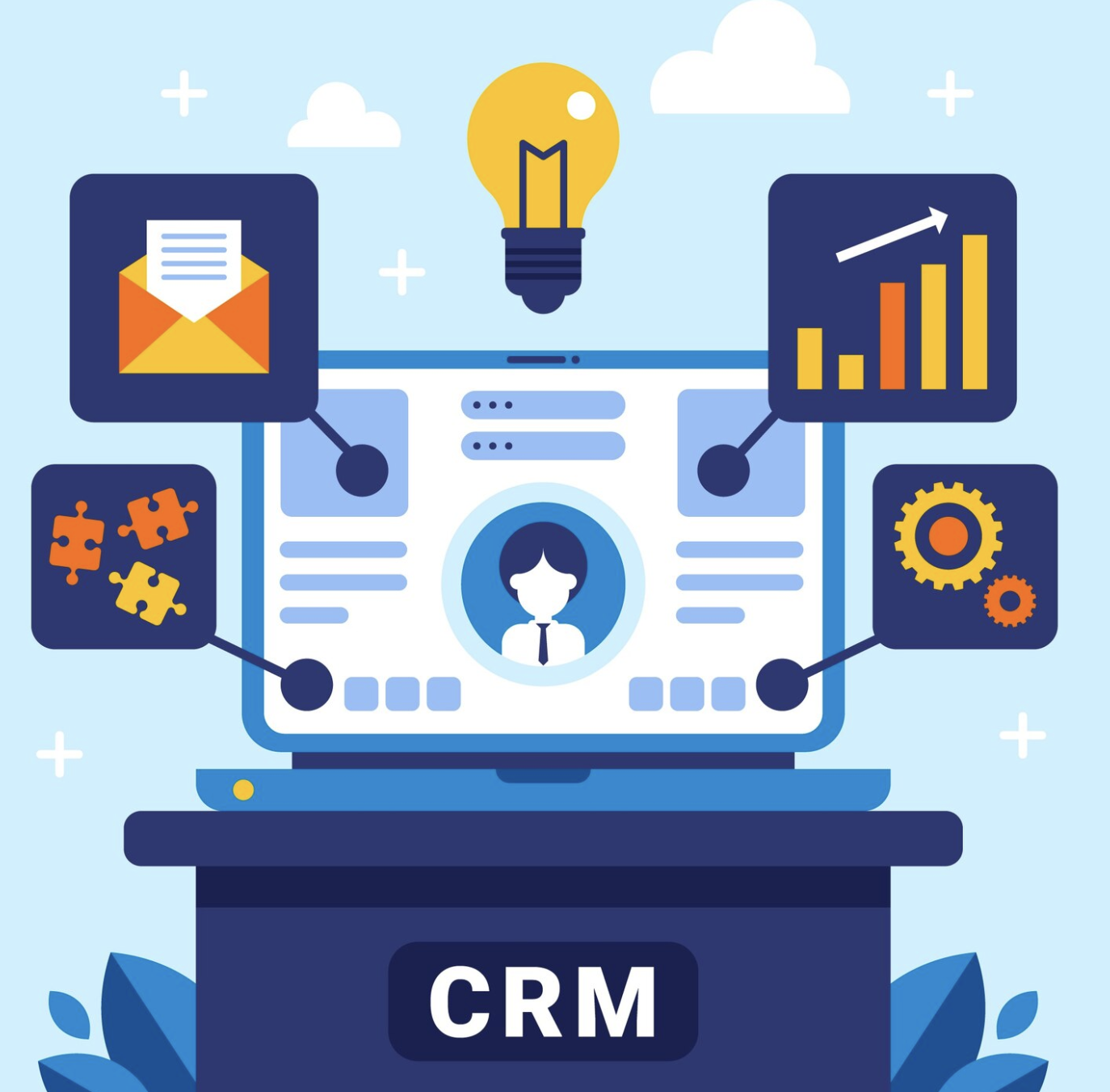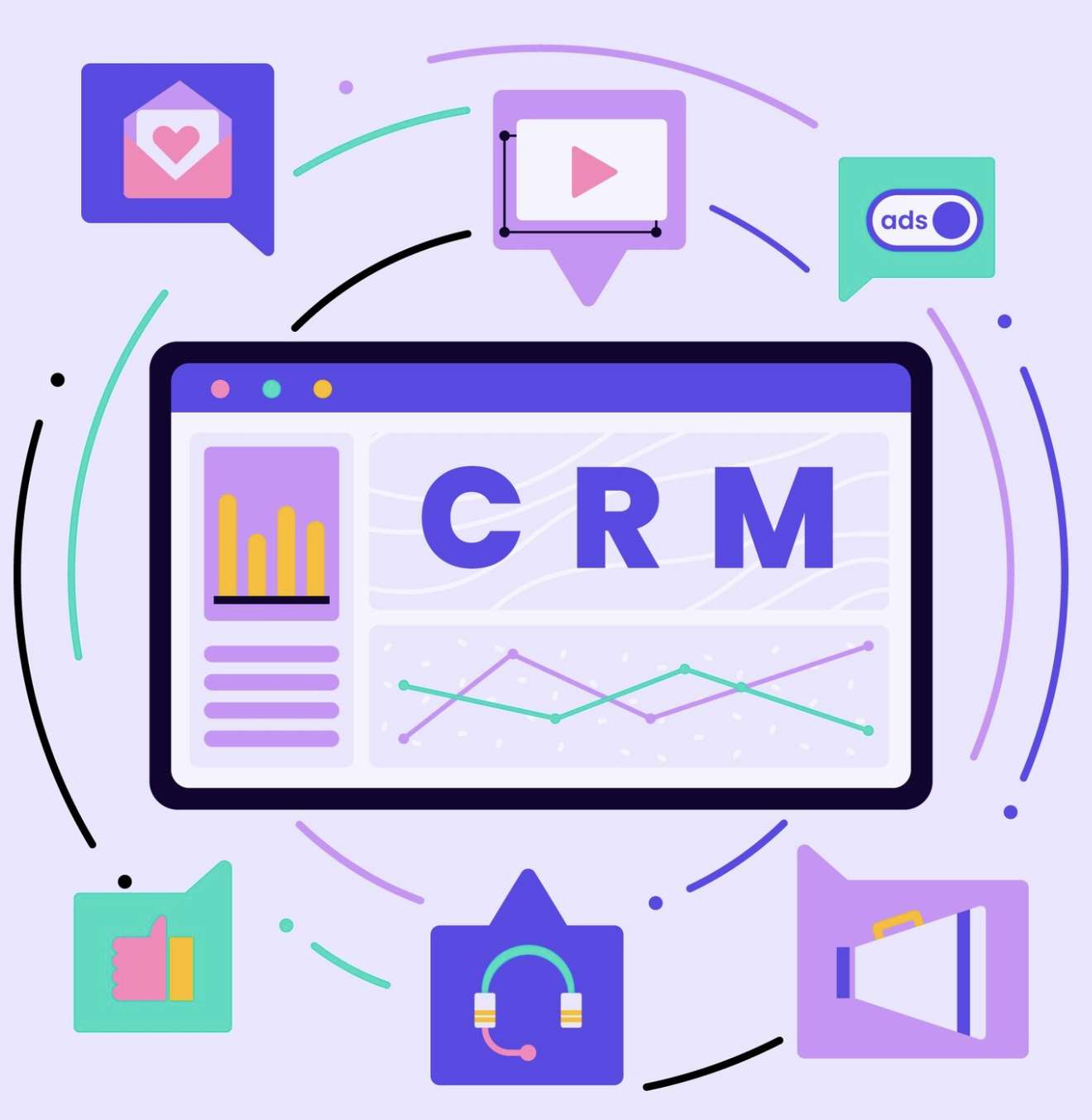
How do you ensure your customers get the best service across all platforms? In today’s digital age, they interact with brands through various channels and expect quick, effective responses every time. They expect quick and effective responses, regardless of the platform they use. Integrating Customer Relationship Management (CRM) systems with social media, email, and messaging apps can revolutionise customer service. This integration also helps businesses manage all customer interactions from a single interface, enhancing their ability to resolve issues promptly and improve customer satisfaction.
The Power of CRM Integration
CRM systems are vital tools for managing customer interactions, data, and feedback. When integrated with social media and other communication channels, CRMs become even more powerful. Here’s how integrating CRM with social media and messaging apps can transform customer service:
Unified Customer View
A significant advantage of integrating CRM with social media, email, and WhatsApp is the unified customer view it provides. Every interaction, whether it happens on Facebook, Twitter, Instagram, email, or WhatsApp, gets recorded in the CRM. This unified view allows customer service agents to see the entire history of interactions with a customer. They can quickly understand previous issues, resolutions, and any ongoing concerns. This comprehensive view enables agents to provide more personalised and efficient service.
Faster Response Times
Integrating CRM with social media and messaging apps can significantly reduce response times. Customer service agents can access all customer inquiries from one dashboard. They no longer need to switch between different platforms to address customer issues. This efficiency leads to faster response times and improved customer satisfaction. A speedy response shows customers that the brand values their time and is committed to resolving their issues promptly.
Improved Customer Engagement
Using CRM integrated with social media and WhatsApp helps improve customer engagement. Customers appreciate timely and relevant responses. When agents have access to detailed customer histories, they can engage more meaningfully. This personalised approach makes customers feel valued and understood. Engaged customers are more likely to remain loyal and recommend the brand to others.
Enhanced Issue Resolution
With all customer interactions in one place, agents can resolve issues more effectively. They can track the progress of each issue, see what solutions have been attempted, and understand what worked in the past. This comprehensive understanding helps agents to address issues more accurately and efficiently. Moreover, it prevents customers from having to repeat themselves every time they contact the brand, which can be frustrating.
Proactive Customer Service
CRM integration allows for proactive customer service. By analysing interaction histories and customer data, brands can anticipate customer needs and address issues before they escalate. For example, if a customer frequently contacts support about a specific issue, the brand can proactively offer a solution or provide additional information to prevent future problems. This proactive approach enhances customer satisfaction and can lead to higher customer retention rates.

Best Practices for CRM and Social Media Integration
To fully leverage the benefits of CRM integration with social media, email, and WhatsApp, brands should follow these best practices:
Choose the Right CRM Platform
Not all CRM platforms are created equal. It’s essential to choose a CRM that supports integration with various social media channels and messaging apps. The CRM should be user-friendly and scalable to meet the growing needs of the business. It should also offer robust reporting and analytics features to track customer service performance.
Train Customer Service Agents
Proper training is crucial for effective CRM use. Agents should be trained to use the integrated CRM system efficiently. They should know how to access customer histories, respond promptly, and resolve issues effectively. Continuous training ensures that agents stay updated with the latest features and best practices.
Monitor and Analyze Performance
Regular monitoring and analysis of customer service performance are essential. Use the CRM’s analytics features to track key metrics, such as response times, resolution rates, and customer satisfaction scores. Analysing this data can help identify areas for improvement and ensure that customer service standards are maintained.
Maintain Consistent Communication
Consistency is key in customer service. Ensure that all communication across different channels is consistent in tone and message. This consistency helps build trust and reliability. The CRM system should facilitate this by providing templates and guidelines for common responses.
Encourage Customer Feedback
Encouraging customer feedback is crucial for continuous improvement. Use the CRM system to send follow-up messages or surveys after interactions. Analyze this feedback to understand customer needs better and make necessary adjustments to service strategies.
Secure Customer Data
Data security is paramount when dealing with customer information. Ensure that the CRM system complies with data protection regulations and follows best practices for data security. Protecting customer data builds trust and ensures that sensitive information is handled responsibly.
WhatsApp for Customer Service
WhatsApp has become a popular platform for customer service due to its widespread use and convenience. Integrating WhatsApp with CRM systems offers several benefits:
Direct and Immediate Communication
WhatsApp allows for direct and immediate communication with customers. This real-time interaction can significantly enhance the customer experience. Customers can reach out to brands anytime and expect quick responses. Integrating WhatsApp with CRM ensures that these interactions are recorded and managed efficiently, just like other communication channels.
Multimedia Support
WhatsApp supports various multimedia formats, including text, images, videos, and voice messages. This versatility allows brands to provide richer, more detailed support. For example, customers can send photos or videos to illustrate their issues, and brands can respond with visual instructions or troubleshooting guides. Integrating this functionality into the CRM system ensures that all multimedia interactions are logged and accessible to support agents.
Personalised Messaging
In addition to social media customer service, WhatsApp too is a platform for personalised customer care. With WhatsApp integration, brands can send personalised messages based on customer data stored in the CRM. This personalization can include addressing customers by name, referencing previous interactions, or offering tailored solutions. Personalised messaging makes customers feel valued and understood, which enhances their overall experience with the brand. Additionally, Whatsapp can be a good tool for upselling to existing customers.

Conclusion
Integrating CRM with social media, email, and WhatsApp is a game-changer for customer service. It allows brands to manage all customer interactions from a single interface, providing a seamless and efficient service experience. This integration enhances response times, improves customer engagement, and enables proactive service. With the widespread use of WhatsApp for customer service, integrating it with CRM systems offers additional benefits, such as direct communication, multimedia support, and personalised messaging.
Take your customer service to the next level with Trooya, a cloud-based social media contact centre. Trooya enables your agents to respond to customers, resolve their issues, and earn their goodwill, all from one powerful platform. Experience the future of seamless customer service. Learn more about Trooya today!
